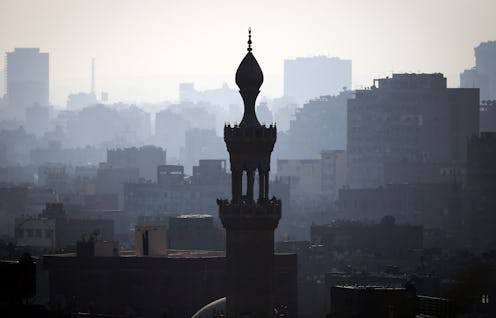
On Monday, the Twitter account @EgyptArtOnTrial announced that the jailed Egyptian novelist Ahmed Naji would go free after a long imprisonment. Naji was originally jailed in 2015, after a 65-year-old complainant claimed that sexual content from Naji's third novel, The Use of Life, gave him "heart palpitations, sickness, and a drop in blood pressure." An excerpt containing the offending passage had been published by the Egyptian magazine Akhbar al-Adab, which is owned and operated by the state.
The imprisonment of Ahmed Naji has brought to light the myriad rights restrictions journalists around the world face. As of Dec. 1, there are 259 journalists jailed around the globe, which is more "than at any time since the Committee to Protect Journalists began keeping detailed records in 1990." Egypt accounts for just under 10 percent of that total, with 25 imprisoned writers and reporters, and is the third-worst offender worldwide.
Naji's release was originally slated for Monday, but a paperwork complication caused a delay, PEN International told The Guardian. The author's lawyer, Mahmoud Osman, hoped he would be released on Tuesday, but, at the time of this writing, no announcement confirming Naji's freedom has been made.
That setback is the latest in a long line of false starts that appeared to promise Naji's freedom. The novelist was acquitted in December 2015, but the prosecutor — who "threatened to add charges ... for 'dealing with hashish' because the novel's excerpt described drug use" — appealed the acquittal to a higher court in February 2016. That court overturned the original ruling and sentenced Naji to a two-year prison term, which began immediately. According to PEN America and Naji's lawyers, the charges violate Egyptian law:
The Egyptian Constitution, drafted in 2014, explicitly guarantees freedom of artistic and literary creation, freedom of thought and opinion, and freedom of the press. Article 67 forbids the jailing of artists and writers for publishing their work. However, Article 178 of the Penal Code, under which Naji was sentenced, criminalizes content that violates public morals. Naji’s lawyers have submitted a motion to the Prosecutor-General arguing that the sentence against Naji should not be implemented since it violates the Egyptian Constitution, but the motion is still pending.
Naji will face another hearing on Jan. 1, when the courts will decide whether to uphold his current sentence or retry him.